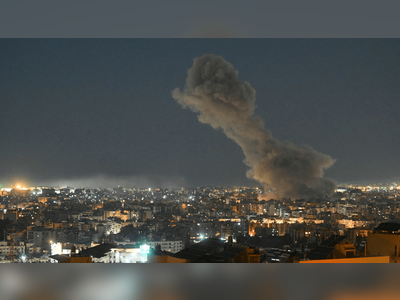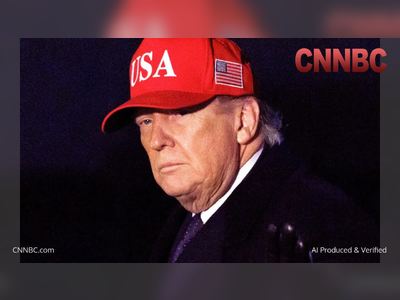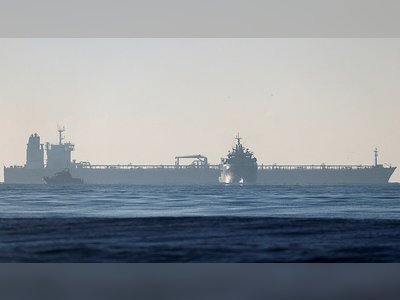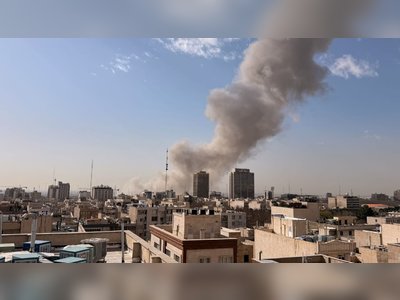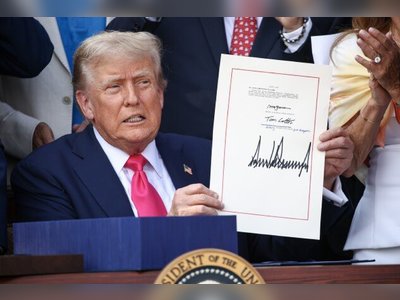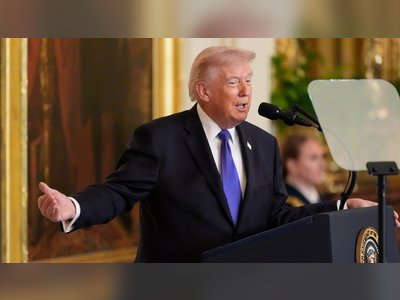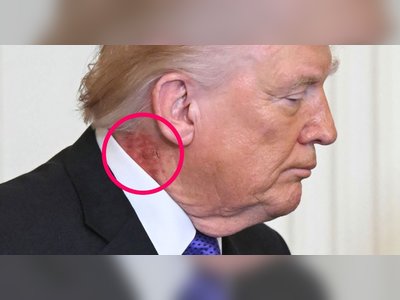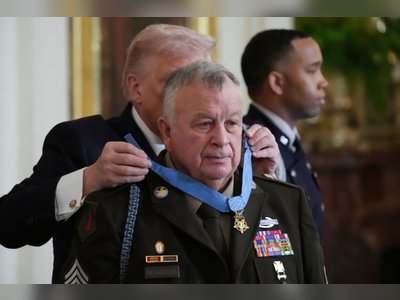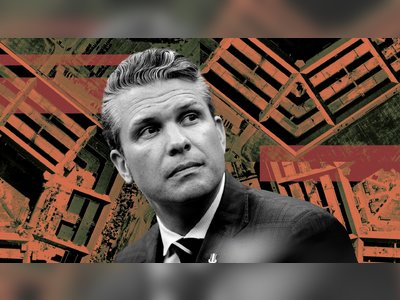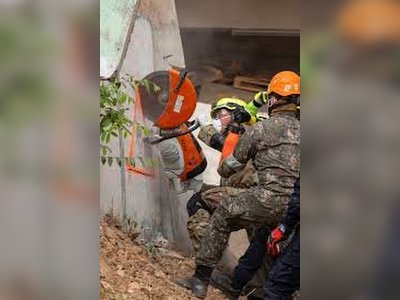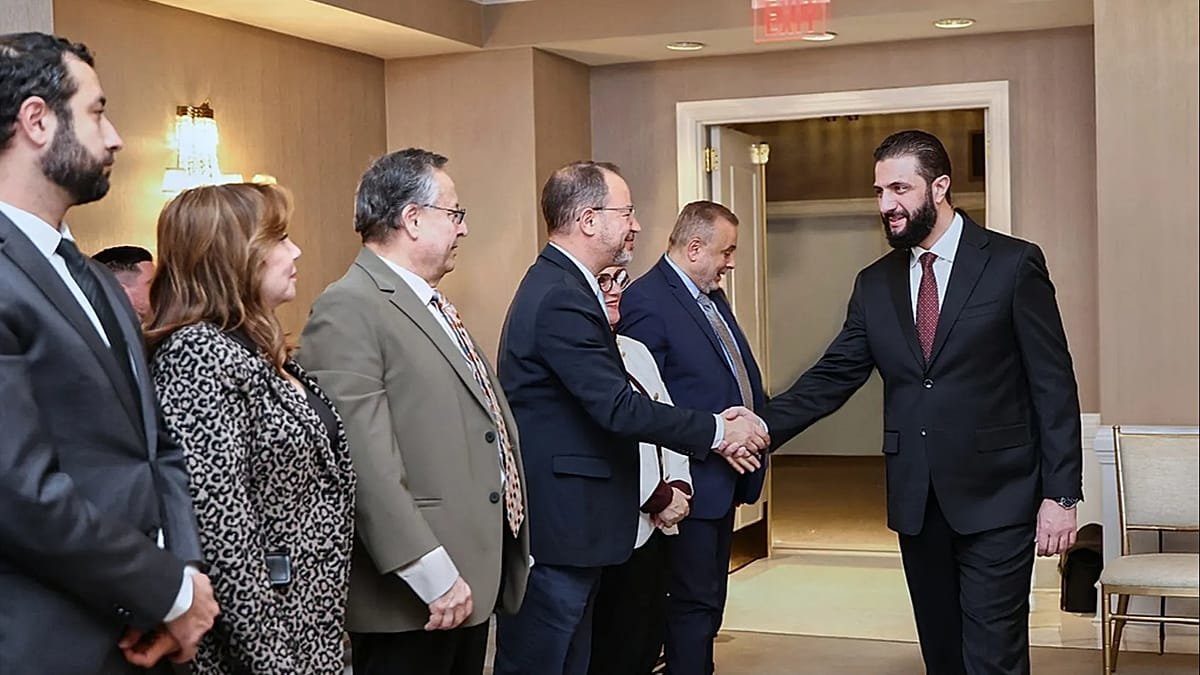
Trump Hosts Syria’s Al-Sharaa at White House as Damascus Moves into U.S-Led Anti-ISIS Coalition
Historic first visit by a Syrian head of state since independence, signalling significant U.S.–Syria diplomatic realignment
President Donald Trump welcomed Syrian interim head of state Ahmad al-Sharaa at the White House on Monday, marking the first visit by a Syrian president since Syria’s 1946 independence.
The meeting follows a May encounter in Saudi Arabia and coincides with plans for Damascus to formally join the U.S.-led global coalition against the Islamic State group.
White House press secretary Karoline Leavitt described the contact as “part of the president’s efforts in diplomacy to meet with anyone around the world in the pursuit of peace.” Al-Sharaa, once listed by the U.S. with a ten-million-dollar bounty and previously a detainee of U.S. forces, has over the past year shifted from insurgent leader to recognised statesman.
On the agenda is Syria’s ostensible entrance into the anti-ISIS coalition, lifting of remaining sanctions under the Caesar Act and post-war reconstruction, with Syria estimated to require more than two-hundred-billion dollars in rebuilding.
The United Nations Security Council removed sanctions on al-Sharaa and Interior Minister Anas Khattab earlier this week, clearing one of the last formal obstacles to Damascus’s return to the international fold.
President Trump, who previously described al-Sharaa as “a young, attractive guy.
Tough guy.
Strong past, very strong past,” told reporters that “a lot of progress has been made with Syria” since Washington eased sanctions.
The U.S. transition signals a calculated effort to reposition Syria away from Russian and Iranian influence and better integrate the country into Western-backed frameworks for security and diplomacy.
Still, the full repeal of U.S. sanctions remains in Congress’s hands, and conditional investment protections and human-rights guarantees are under negotiation.
The outcome of the talks could prove pivotal as Syria seeks both legitimacy and capital for reconstruction, and as the United States aims to redefine its Middle East engagement with a greatly changed Damascus at the table.
The meeting follows a May encounter in Saudi Arabia and coincides with plans for Damascus to formally join the U.S.-led global coalition against the Islamic State group.
White House press secretary Karoline Leavitt described the contact as “part of the president’s efforts in diplomacy to meet with anyone around the world in the pursuit of peace.” Al-Sharaa, once listed by the U.S. with a ten-million-dollar bounty and previously a detainee of U.S. forces, has over the past year shifted from insurgent leader to recognised statesman.
On the agenda is Syria’s ostensible entrance into the anti-ISIS coalition, lifting of remaining sanctions under the Caesar Act and post-war reconstruction, with Syria estimated to require more than two-hundred-billion dollars in rebuilding.
The United Nations Security Council removed sanctions on al-Sharaa and Interior Minister Anas Khattab earlier this week, clearing one of the last formal obstacles to Damascus’s return to the international fold.
President Trump, who previously described al-Sharaa as “a young, attractive guy.
Tough guy.
Strong past, very strong past,” told reporters that “a lot of progress has been made with Syria” since Washington eased sanctions.
The U.S. transition signals a calculated effort to reposition Syria away from Russian and Iranian influence and better integrate the country into Western-backed frameworks for security and diplomacy.
Still, the full repeal of U.S. sanctions remains in Congress’s hands, and conditional investment protections and human-rights guarantees are under negotiation.
The outcome of the talks could prove pivotal as Syria seeks both legitimacy and capital for reconstruction, and as the United States aims to redefine its Middle East engagement with a greatly changed Damascus at the table.

